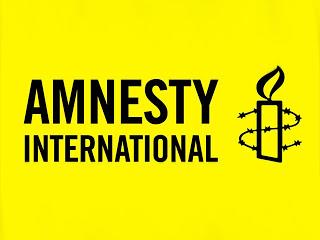Amnesty International says Iran has carried out a total of 40 executions since the beginning of 2014, with at least 33 carried out last week alone.

Amnesty International Middle East and North Africa Deputy Director Hassiba Hadj Sahraoui said, “The spike in the number of executions carried out so far this month in Iran is alarming.
by
Martin Banks
Since the beginning of the year, Amnesty has recorded 21 executions which were officially acknowledged by the Iranian authorities, as well as 19 additional executions reported through reliable sources.
At least one public execution was carried out on 13 January in Sirjan, in Kerman Province in southern Iran, the execution of a man convicted of murder.
Public executions in Iran are usually carried out using cranes which lift the condemned person by a noose around the neck in front of a crowd of spectators.
The new figures indicate a dramatic increase in death penalty figures from Iran for the same period last year.
In the week since 9 January more officially-acknowledged executions have been carried out in Iran than during the whole of January 2013.
Amnesty International Middle East and North Africa Deputy Director Hassiba Hadj Sahraoui said, “The spike in the number of executions carried out so far this month in Iran is alarming.
“The Iranian authorities’ attempts to change their international image are meaningless if at the same time executions continue to increase.
“The reality in Iran is that people are being ruthlessly sentenced to death after unfair trials, and this is unacceptable.”
Most of those executed in Iran had been convicted of alleged drug-related offences. Under international standards, non-lethal crimes such as drugs offences do not meet the threshold of “most serious crimes” to which the death penalty must be restricted.
According to Amnesty, there is also no right to a meaningful appeal for drugs offences under Iran’s Anti-Narcotics Law, contrary to its international obligations to ensure that anyone convicted of a criminal offence has the right to appeal the conviction.
Revolutionary Court trials, says Amnesty, are frequently held behind closed doors and judges have the discretion to restrict lawyers’ access to the defendant during pre-trial investigations in limited cases.
Amnesty says it opposes the death penalty in all cases "without exception" and the organisation is calling on the Iranian authorities to immediately adopt an official moratorium on all executions and commute all death sentences.
"The Iranian authorities must also end all secrecy surrounding their use of the death penalty," said a spokesman.




 By: N. Peter Kramer
By: N. Peter Kramer
